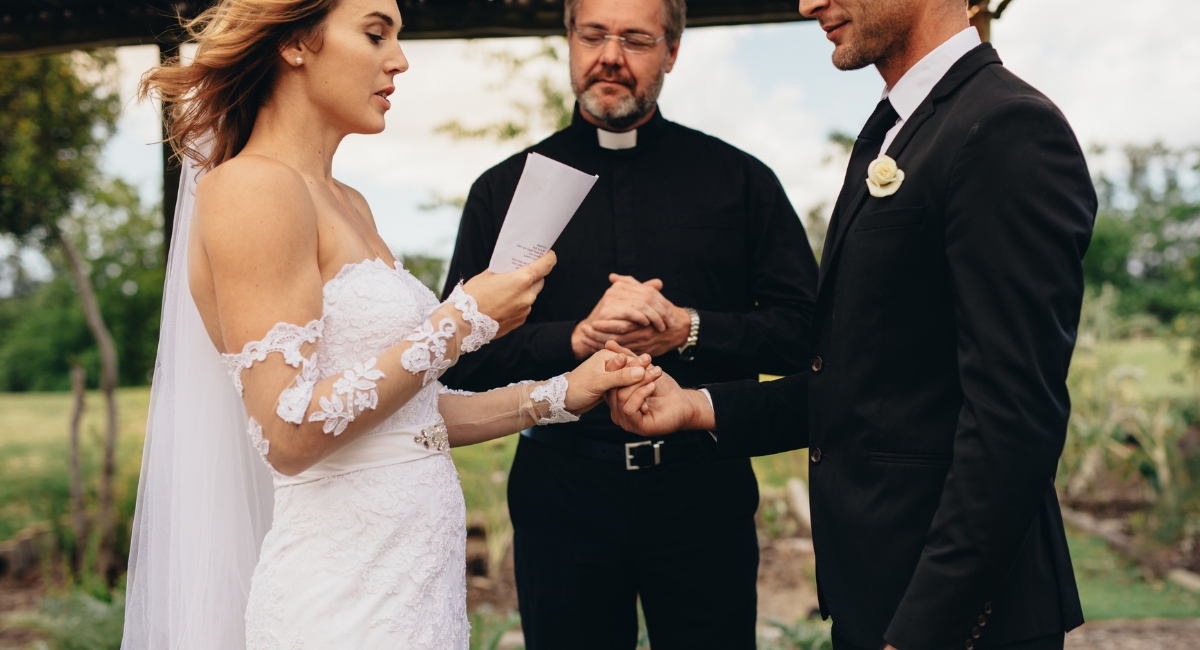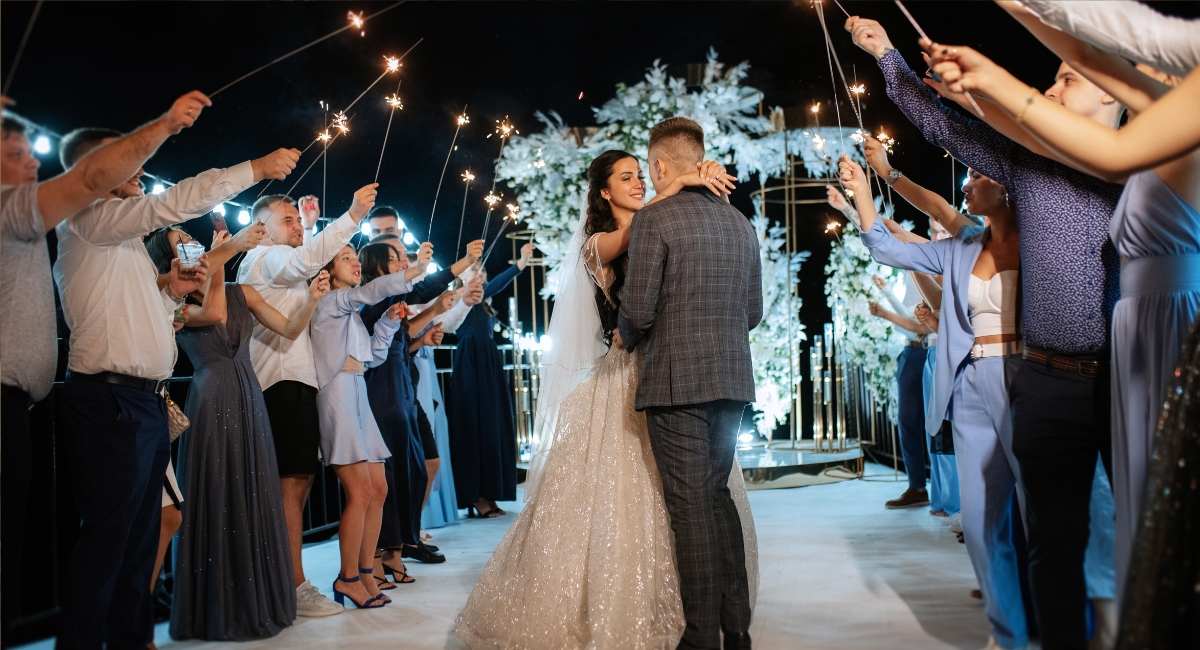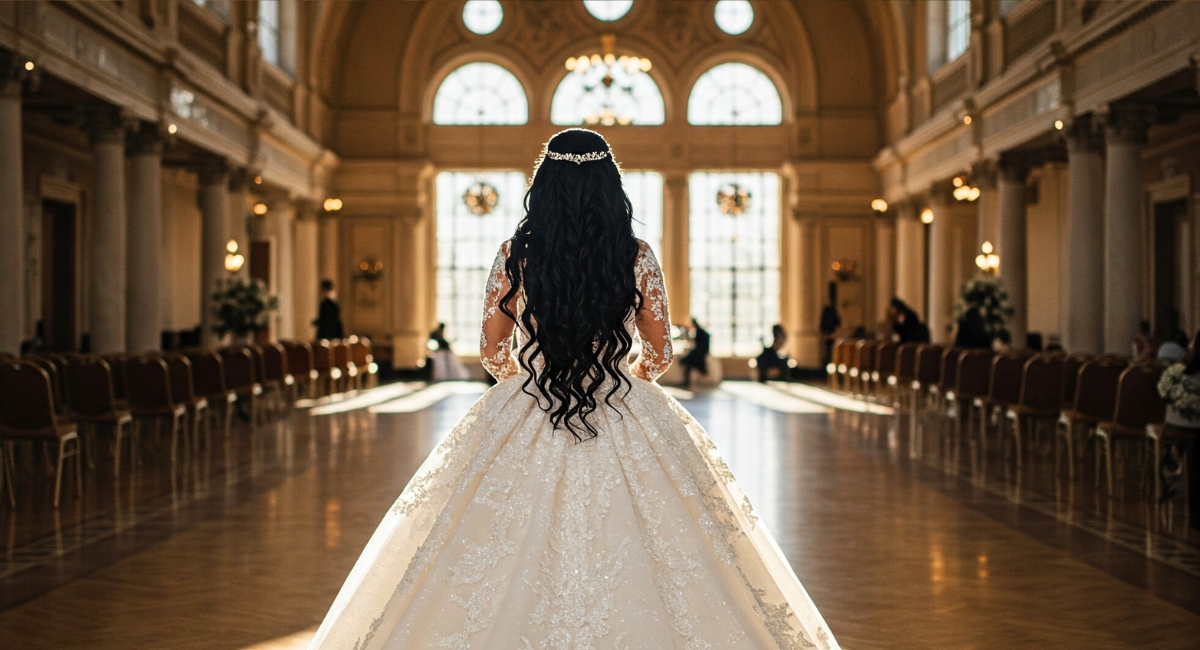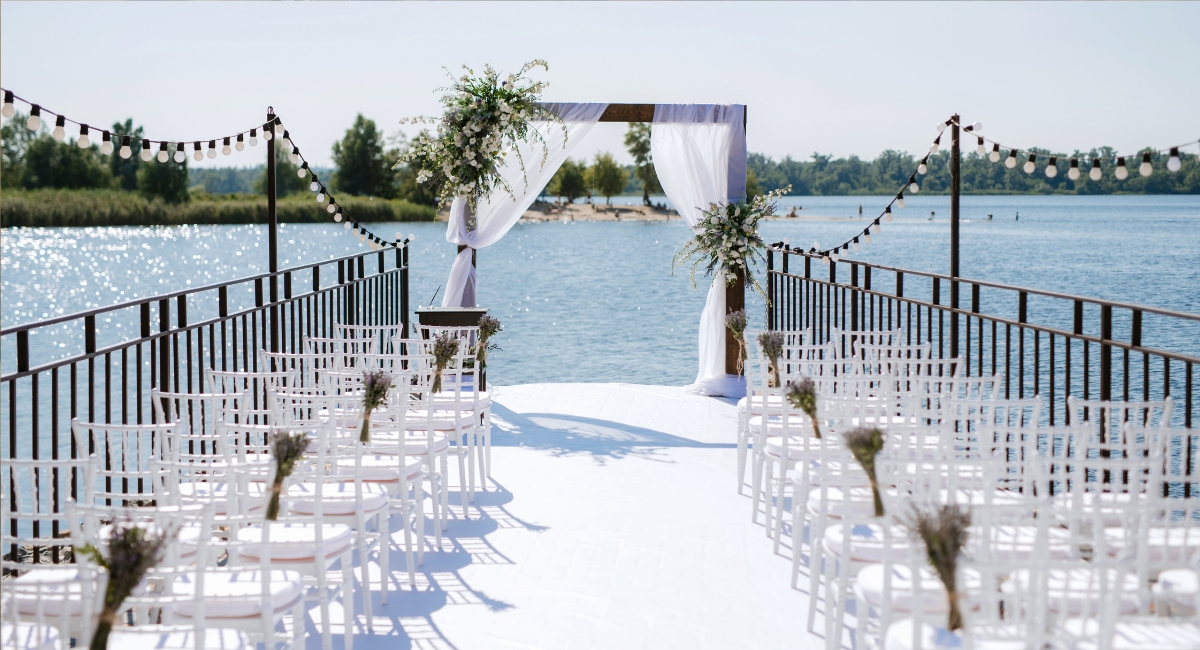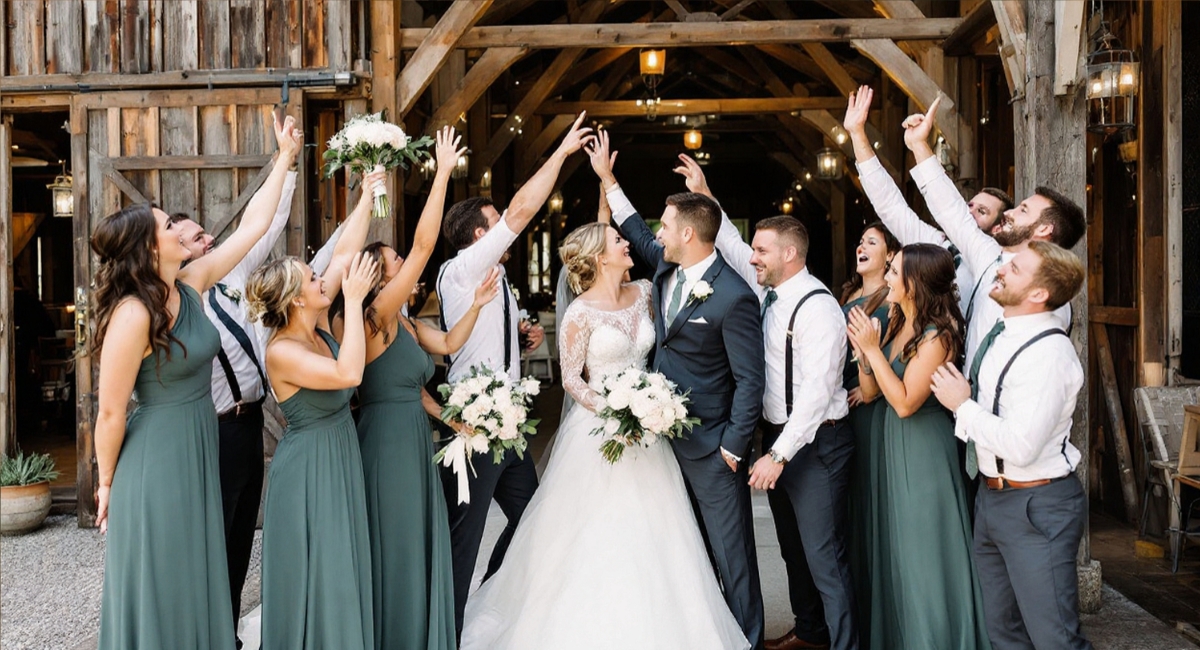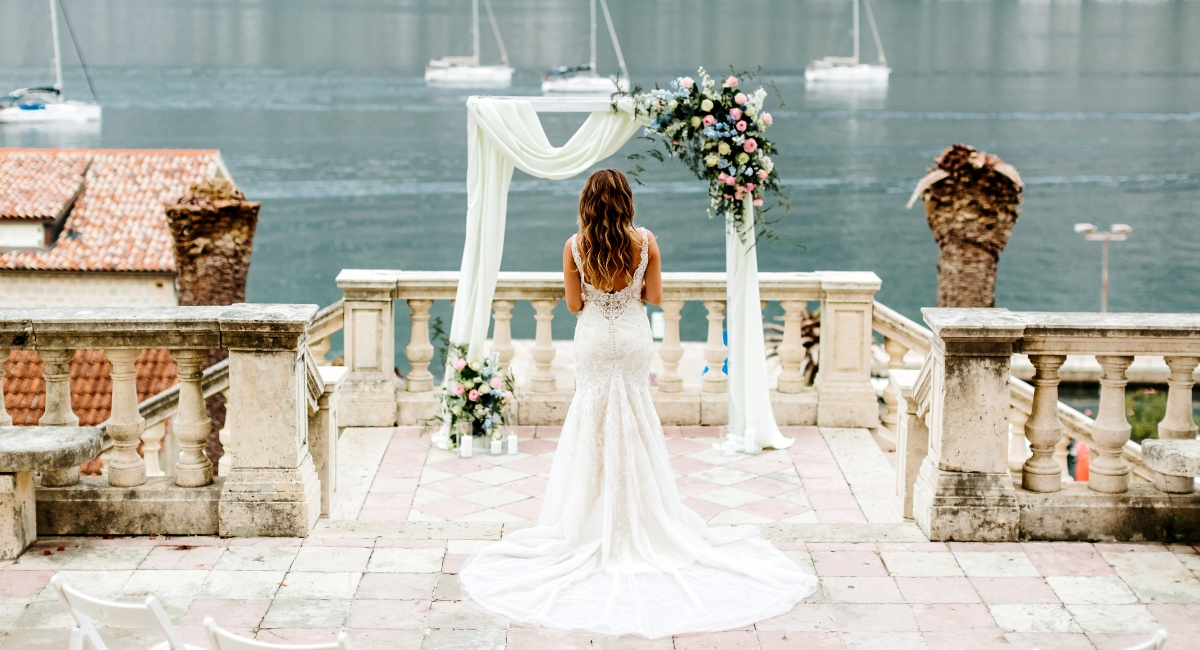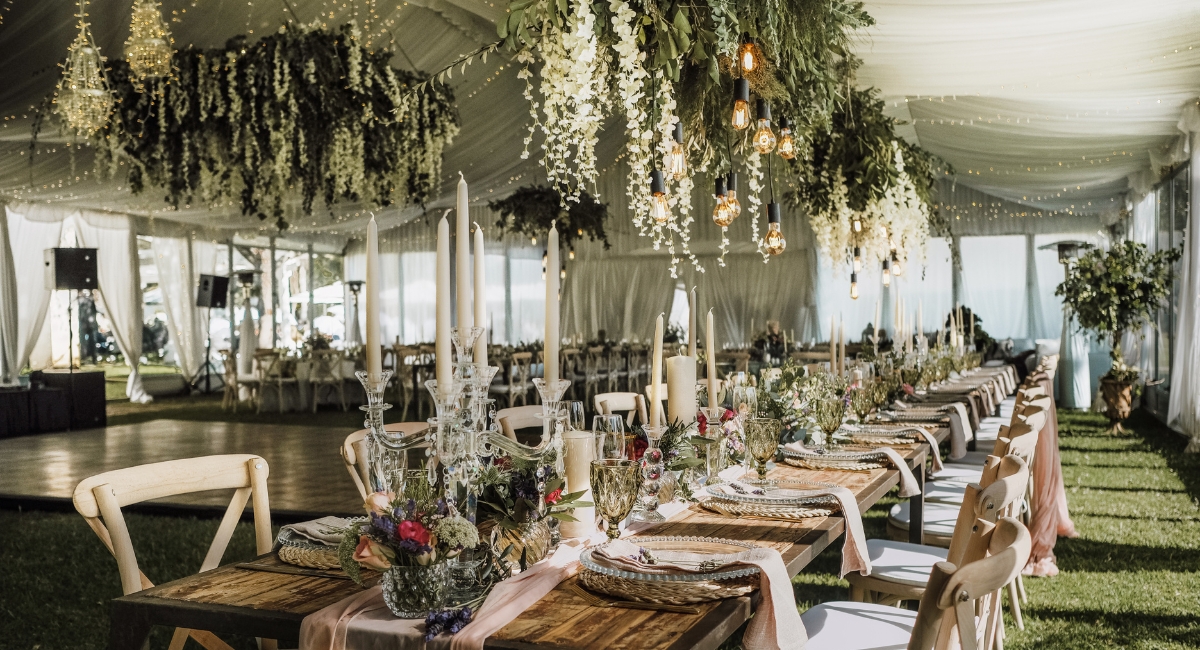Traditional wedding vows have endured for centuries—not because they’re outdated, but because they carry timeless meaning. These sacred words, repeated by generations of couples, echo promises that go deeper than ceremony. They speak of commitment, patience, faithfulness, and love that endures through life’s seasons.
Whether you’re drawn to time-honored rituals or simply want to ground your ceremony in something meaningful, this guide offers examples, origins, and insights into traditional vows to help you find the words that feel right for your union.
The Meaning and Origin of Traditional Wedding Vows
Before crafting your ceremony, it helps to understand where these vows come from—and why they’ve lasted.
The most well-known phrasing of Christian wedding vows comes from the Book of Common Prayer, first published in 1549 by the Church of England. These vows weren’t just poetic; they were designed to reflect spiritual values, moral duties, and the sacred nature of the covenant between husband and wife.
The phrasing—“to have and to hold, from this day forward, for better, for worse, for richer, for poorer…”—has been used in countless Christian ceremonies, both Protestant and Catholic, across centuries and continents.
What gives these vows staying power is their clarity and gravity. There’s no fluff—just a direct, reverent acknowledgment of the lifelong journey two people are stepping into together.
Christian Wedding Vows: Examples and Variations
Christian vows may vary slightly between denominations, but they all emphasize a sacred, enduring promise. Here are the most common versions, along with a few modern adaptations.
Traditional Anglican (Book of Common Prayer)
“I, [Name], take thee, [Name], to be my wedded [husband/wife],
To have and to hold from this day forward,
For better, for worse, for richer, for poorer,
In sickness and in health,
To love and to cherish,
Till death us do part,
According to God’s holy ordinance;
And thereto I give thee my troth.”
This version remains a staple in Anglican and Episcopalian weddings. It reflects mutual commitment, personal sacrifice, and a shared spiritual journey.
Roman Catholic Wedding Vows
“I, [Name], take you, [Name], to be my [husband/wife].
I promise to be true to you in good times and in bad,
in sickness and in health.
I will love you and honor you all the days of my life.”
Roman Catholic weddings often include a vow of permanence and fidelity, followed by a blessing from the priest. Couples can opt to recite their own vows or repeat lines after the officiant.
Lutheran/Presbyterian/Methodist Vows
These denominations often use similar language to the Book of Common Prayer, with slight adaptations such as:
“I take you to be my [husband/wife],
And I promise before God and these witnesses
To be your faithful [husband/wife],
To share with you in plenty and in want,
In joy and in sorrow, in sickness and in health,
And to join with you so that together we may serve God and others
As long as we both shall live.”
This version adds the idea of shared service and spiritual purpose, especially valued in more community-driven denominations.
Modern Christian Vows Inspired by Tradition
Some couples choose to update the language of traditional vows while preserving the structure and depth. Here are a few modernized examples:
“I promise to love you without condition,
To support your dreams and stand by your side,
In the joys and challenges of life.
I will honor our bond, serve our home,
And walk beside you, guided by faith and grace,
For all the days of my life.”
This format offers flexibility to personalize while still feeling rooted in Christian values like service, humility, and unconditional love.
Other Cultural and Religious Vows
While this article centers on Christian vows, it’s worth acknowledging that other cultures have their own traditions of profound significance:
- Jewish: Vows are often reflected in the ketubah (marriage contract) and the Sheva Brachot (Seven Blessings), recited during the ceremony. While the couple may not speak specific vows, their commitments are spiritually and legally binding.
- Hindu: The Saptapadi (Seven Steps) are taken around a fire, each accompanied by a vow related to health, strength, prosperity, family, and unity.
- Muslim: In Islamic weddings, the Nikah contract is signed, often with brief spoken declarations by the couple acknowledging mutual consent.
- Quaker and Buddhist traditions often involve silent reflection, readings, or personal declarations in place of formal vows.
Tips for Choosing or Personalizing Your Wedding Vows
If you’re preparing for your ceremony and want to stick with traditional vows—or give them your own twist—here’s how to think through the process:
Reflect on Your Shared Faith
Traditional vows speak to lifelong commitment and shared spiritual purpose. If your faith plays a central role in your relationship, let that guide your language.
Discuss With Your Officiant
Different churches and officiants have different expectations. Some require the use of approved vows; others allow personalization. Check in early to understand your options.
Decide: Recite or Repeat?
Are you comfortable memorizing your vows or would you rather repeat them after your officiant? Practicing either way helps ease nerves and ensures a smoother delivery.
Add a Personal Line (if allowed)
Some couples choose to add one line before or after traditional vows that reflects something personal:
“And I vow to always make you coffee on Sunday mornings.”
“And I promise to keep Christ at the center of our home.”
Little touches like this can make your vows feel deeply yours—without losing the timeless rhythm of tradition.
Practice With Purpose
Even the most composed couples get emotional when it’s time to speak their vows. Practice reading them aloud to yourself. Record a voice memo. Say them during a quiet moment of prayer or reflection. This will help you connect with the words when it matters most.
Vows That Anchor the Day—and the Life to Come
Traditional wedding vows do more than check a box during the ceremony. They anchor the entire day. They remind the couple—and everyone present—of what this moment really means. Of the promises being made before God, family, and community.
At a venue like Lumen Hall in Coeur d’Alene, where reverence meets elegance, these words come alive in a setting that honors both tradition and personal connection. With experienced event planners to guide you every step of the way, your ceremony becomes not just a moment, but a memory built to last.
So speak your promises with heart. Let your vows reflect your faith, your journey, and your hope for the future. And trust that their power will carry you forward, day by day, year by year, in love.

